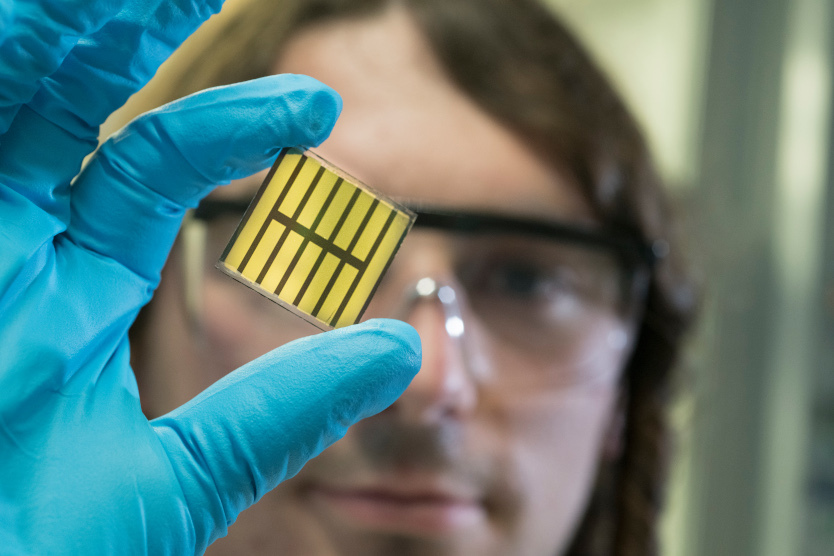
The innovative tandem solar module will achieve efficiency rates of more than 30 percent
© Markus Breig, KIT
The research project is based on the realisation that both technologies can be ideally combined to generate significantly more energy from sunlight than conventional modules. While a solar cell based on perovskite semiconductors absorbs light from the visible part of the absorption spectrum, a solar cell with semiconductors composed of copper, indium, gallium and selenium (CIGS) can use infrared light to generate electricity.
The tandem solar cell developed within the scope of the Capitano project consists of a perovskite solar cell mounted on a CIGS solar cell directly underneath it. In addition to a highly efficient energy yield, this design also offers other advantages. The fact that both solar cells can be manufactured as thin-film technologies on square metre-sized substrates means that considerable savings can be made in terms of the production costs. Such a highly efficient thin-film tandem cell could be used, for example, in photovoltaic solutions integrated into buildings.
Before this can happen, however, the project partners from the Zentrum für Sonnenenergie - und Wasserstoff-Forschung Baden-Württemberg (ZSW) and the Karlsruhe Institute of Technology (KIT) will be carrying out numerous development stages over the next three years together with industry partner NICE Solar Energy GmbH. First, CIGS modules with an adapted band gap and optimised surfaces will be developed as well as highly efficient semi-transparent perovskite solar modules with an adapted band gap. The project will focus on testing scalable production processes such as slot casting or deposition from the gas phase in vacuum; the possibility of transferring this innovative technology to industrial-scale production levels is being evaluated in particular in terms of the costs to be expected.
The Capitano project is receiving approximately 5.2 million euros in funding from the Federal Ministry for Economic Affairs and Energy (BMWi).


